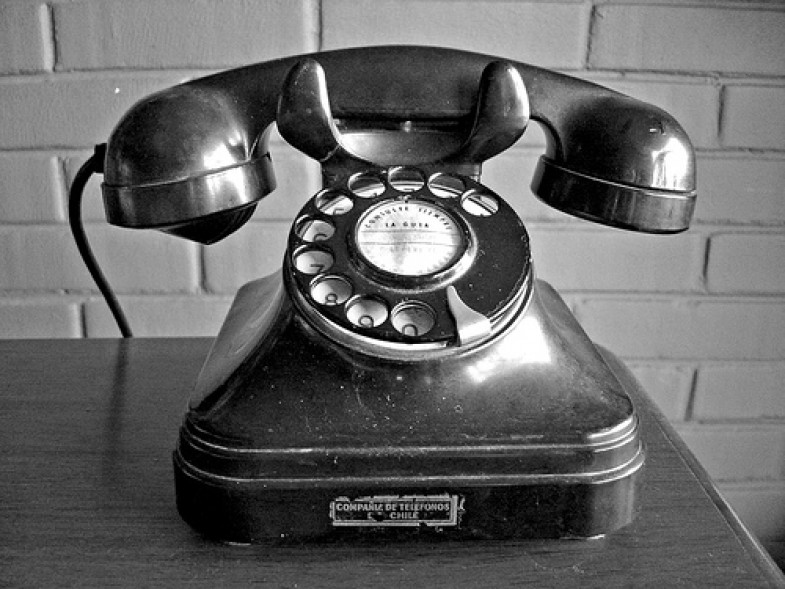I don’t own a cell phone for pretty much the same reason I didn’t become a lawyer after I graduated from law school – namely, the brooding sense that one more would just make the problem worse. Besides, one thing I do not need these days is another thing to think I need. So when it comes to Steve Jobs and his vaunted iPhone, this is a hunt I have no dog in.
Still it?s hard not to follow the story, in particular the tragedy of Mr. Jobs himself. Decades ago, he and Steve Wozniak were making black boxes that enabled people to hack into the AT&T long distance network. Now he’s become the enforcer of the sanctity of that very network, at least as it connects to his iPhone. The guy who was the anti- Bill Gates has become a disciple of the Gates business model, which is to lock customers into a technological system as opposed to giving them tools to do what they want.
It?s a case study of a man who becomes that which he sets out to oppose. It happens often in the realms of money and power; the revolution turns conservative from the moment of its success. When an idea becomes a corporation the tendency takes on an especially virulent form. Corporations are like velodrome bikes without freewheels or brakes. They cannot pause, or stop, or say “enough.” The way commercial media must fill the air even when there is nothing to say, the corporation must continue to grow even when it has run out of things worth doing.
Onward it must go. A Howard Schultz, the Starbuck’s founder, is reduced to writing anguished memos to the company staff, on how its coffee outlets have lost their “magic.” Howard, what did you expect when you decided to put one on every block in every city in the country? Or perhaps Schultz didn’t actually decide. Perhaps the built-in mechanism of the bike made that inevitable. Gotta grow. Gotta go.
I don’t know any more than you do, and probably less. But I do have a hunch that Steve Jobs was in something of the same position with the iPhone. Some internal financial imperative required the hook-up with AT&T Maybe I’m giving him too much credit, But either way there is something about the arrangement that is both suggestive and dark.
For those who somehow missed the story, Jobs designed the iPhone so it would work only with the AT&T cellular system. Naturally, some inventive buyers hacked the phone so it would work with other providers too. (One suspects a younger Steve Jobs would have done the same.) Among other things, AT&T apparently has very high roaming charges overseas.
So now Jobs has come out with a patch that will render iPhones useless – ‘bricks” in the going term – if altered in this way. Jobs’ defenders say tough doodoo. You don’t want AT&T, then don’t buy the phone. But this isn’t just about the iPhone. It is about the culture of technology and innovation and who gets to do it. America always has been a mecca of vernacular innovation. Freedom has meant the freedom to tinker in your back yard and basement whether just for the heck of it or to pursue a dream.
Europe had the theoretical physicists. The U.S. had this vernacular culture from which industries arose: Thomas Edison, Henry Ford – Jobs himself in his early days, when he and Wozniak were building the the first Apple computer in the now-legendary Silicon Valley garage. This creative energy was premised upon technology that was relatively open and free – not free in that it was given away, but free because you could use it the way you wanted. Young men could take apart their Model T’s and put them back together again. They could modify, improve, and that was how the next generation of auto designers was born.
Same with electronics. The nascent computer industry drew heavily from the ranks of Popular Electronics hobbyists. Now that culture of vernacular innovation is threatened. Automobiles have become so technologically sophisticated, and require such expensive equipment to repair, that backyard mechanics are drying up. Even independent repair shops are going out of business – which just may have been part of the plan. Genetically engineered seeds preclude farmers from saving seeds and breeding their own strains, which are things they have done for eons.
The iPhone is part of this same trend. It is like a terminator seed, a technology that is a dead end except for the company – Apple – that owns it. Jobs gets to invent. The rest of us are consigned to consume. This is the model not of a bustling and fertile democracy but of a centralized and bureaucratic church.


